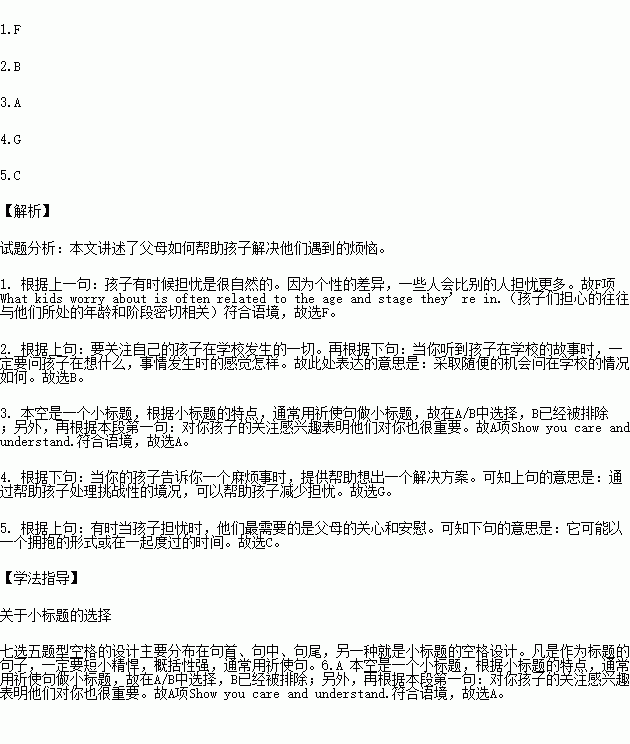题目内容
根据短文内容,从短文后的选项中选出能填入空白处的最佳选项,选项中有两项为多余选项。
It’s natural for all kids to worry at times, and because of personality differences, some may worry more than others. 1. They typically worry about things like grades, tests, their changing bodies, fitting in with friends, the goal they missed at the soccer game, or whether they’ll be bullied (欺负), or left out. Luckily, parents can help kids manage worry and deal with everyday problems.
To help your kids manage what’s worrying them:
Find out what’s on their minds.
Be available and take an interest in what’s happening at school, on the team, and with your kids’ friends. 2. As you listen to stories of the day’s events, be sure to ask about what your kids think and feel about what happened. Sometimes just sharing the story with you can help lighten their load.
3.
Being interested in your child’s concerns shows they’re important to you, too, and helps kids feel supported and understood. Reassuring (令人安心的) comments can help—but usually only after you’ve heard your child out. Say that you understand your child’s feelings and the problem.
Guide kids to solutions.
4. When your child tells you about a problem, offer to help come up with a solution together. If your son is worried about an upcoming math test, for example, offering to help him study will lessen his concern about it.
Offer reassurance and comfort.
Sometimes when kids are worried, what they need most is a parent’s concern and comfort. 5. It helps kids to know that, whatever happens, parents will be there with love and support.
A. Show you care and understand.
B. Take casual opportunities to ask how it’s going.
C. It might come in the form of a hug or time spent together.
D. Kids sometimes worry about things that have already happened.
E. Not all the kids worry about their teachers when they start a new school.
F. What kids worry about is often related to the age and stage they’re in.
G. You can help reduce worries by helping kids learn to deal with challenging situations.
 中考利剑中考试卷汇编系列答案
中考利剑中考试卷汇编系列答案
